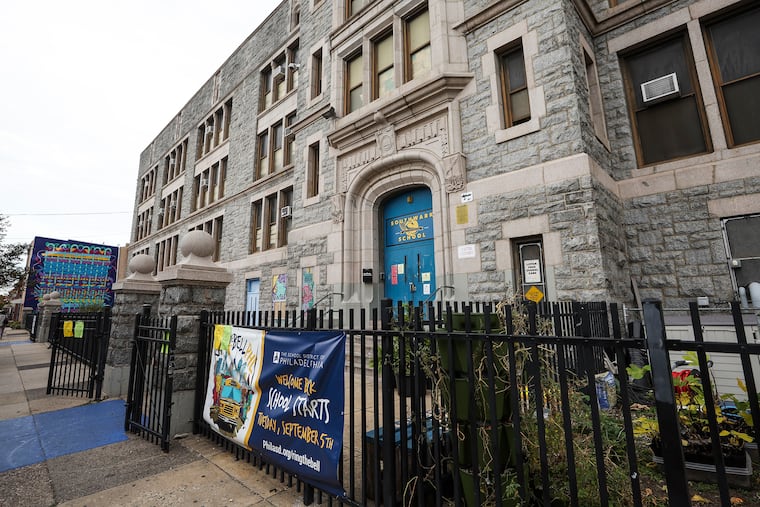It’s time to overhaul the outdated, 110-year-old law that slows down building projects in Pa. | Editorial
Enacted in 1913, the Separations Act was intended to protect tradespeople from being underbid by general contractors for public construction projects. The result in modern times is unnecessary delays.

It is hardly a secret that many of Philadelphia’s public schools are in a state of abject disrepair. Frankford High and Southwark Elementary were both closed because of asbestos. Roughly four out of 10 city schools lack air-conditioning. Basic repairs take weeks, and school officials put the system’s total maintenance backlog at $4.5 billion — a seemingly insurmountable sum for a cash-strapped district.
Thankfully, there’s a way to shorten the timelines and shrink the costs of these desperately needed repairs. It is time to overhaul the Separations Act.
The Separations Act is a state law enacted in 1913 that requires governmental agencies to utilize so-called multiple-prime bidding for all public works projects over $4,000. “Multiple-prime” means signing four separate contracts for plumbing, electrical work, heating, and ventilation, instead of bringing in one vendor to handle all the work.
When the law was crafted 110 years ago, it was designed to protect tradespeople from being underbid by general contractors for building projects.
The result in modern times, however, has been long delays as multiple contracts are signed, and a state of extended disrepair for important public works projects.
In virtually every other state, public entities use general contractors to streamline the construction process. So instead of having a state or local agency identify a range of plumbers, electricians, and other laborers one by one, a general contractor selects the workers and supervises the project, which can save time and money. The bigger and more complex the work is, the more it can benefit from the assistance and oversight of a skilled and experienced general contractor.
For instance, imagine building a new public school. After the building’s foundation is laid and the exteriors are framed, the next step is finishing the interior, which includes plumbing, electrical wiring, heating and ventilation work, and drywall. Without proper coordination, time, money, and materials may end up being wasted. By having a single person responsible for all the major components, public agencies can ensure work is done in the proper order — so that, for example, walls are not installed until after the electrical work and plumbing behind them is completed.
These challenges are why Pennsylvania is the only state in the country that still requires multiple-prime bidding in all public projects. Two other states — Illinois and New York — require multiple-prime bidding under certain, clearly defined circumstances.
While the Separations Act may be relatively obscure, the coalition of partners seeking to abolish or suspend it is broad. Beyond the expected support from builders’ associations, there are also good governance groups, education groups, and sustainability organizations that have endorsed the reform as a way to improve the sometimes cumbersome procurement process for public works. The School District of Philadelphia has also pushed for reform.
This kind of change can have positive results.
There’s also precedent that this kind of change can have positive results. Longtime labor leader Pat Gillespie, who led the Philadelphia Building and Construction Trades Council for 33 years, agreed to a suspension of the Separations Act in order to expedite the construction of the Pennsylvania Convention Center in the early 1990s. The move helped bring down costs to manageable levels for the state and ensured consistent work for his membership going forward.
There is an appetite among some trades unions today to forge a similar agreement on behalf of the city’s schools. Just as the Convention Center was meant to spur tourism at a time when Center City needed more foot traffic, there is a recognition from some labor leaders that the civic need for improved school facilities outweighs the benefits of a favorable bidding process. Given the urgency for city schools, in particular, implementing a waiver of the Separations Act should be prioritized.
But change shouldn’t stop there. Despite its obscurity, the consequences of this outdated law are felt all over our commonwealth. We should enact real reform by doing away with the Separations Act altogether.